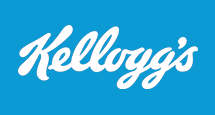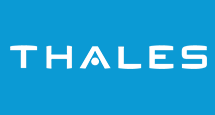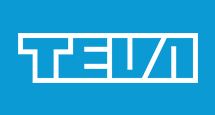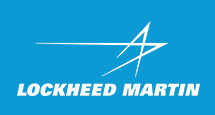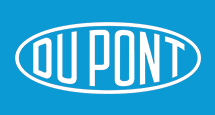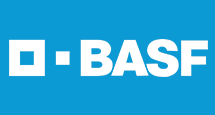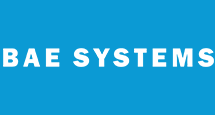Visiongain Publishes Artificial Intelligence (AI) in Drug Discovery Market Report 2021-2031
01 April 2021
Visiongain has published a new report on Artificial Intelligence (AI) in Drug Discovery Market Report 2021-2031: Forecasts by Technology (Machine Learning, Other Technologies), by Application (Drug Optimisation & Repurposing, Preclinical Testing, Others), by Therapeutic Area (Oncology, Neurodegenerative Diseases, Cardiovascular Diseases, Metabolic Diseases, Infectious Diseases, Others), by End-user (Pharmaceutical & Biotechnology Companies, Contract Research Organisation, Research Center, Academic & Government Institutes) AND Regional and Leading National Market Analysis PLUS Analysis of Leading AI in Drug Discovery Companies AND COVID-19 Recovery Scenarios.
Global AI in Drug Discovery market was valued at US$ xx million in 2021 and is projected to reach at a market value of US$ xx million by 2031. Drug discovery is the first step in the process of identifying a new candidate therapeutic for the treatment of diseases. Factors such as increasing data volumes for analysis, quick turnaround time for the discovery and development new drug, computing power, AI also helps in targeted manufacturing and others drive the market growth. Additionally, rising need for decreasing the cost of novel drug discovery and production, analysis of immense data generated by the molecule screening processes and preclinical studies are the other factors that support the growth of the market. However, lack of skilled labour operating AI and huge investments are some of the factors that might restrict the growth of the market to some extent during the forecast period.
COVID-19 Impact on Global AI in Drug Discovery Market
The impact of COVID-19 pandemic is there on almost all the sectors and assessing its impact on the market would be uncertain as there is no knowledge about how long this pandemic stay would. Visiongain believes that considering all the factors there can be four scenarios in which the global market can react to the current crisis and that can be ‘V’ shaped recovery, ‘U’ shaped recovery, ‘L’ shaped recovery and ‘W’ shaped recovery. The functioning of the AI in Drug Discovery was regular during the pandemic situation as there was rising demand for novel drugs for the treatment of critical diseases. In addition, the clinical progress of various drugs also continued with the use of AI but with new obstacles caused due to the pandemic and its effects. Many global companies reported challenges in clinical trial execution, including patient recruitment, enrolment, data collection and/or follow-up. In addition, managing and reacting to the ongoing public health crisis caused by COVID-19 has become the priority for many policymakers, regulators, and public sector payors. Thus, this could result in a delay for drug candidates outside of the COVID-19 space.
Market Drivers
Development of a new drug is difficult and time-consuming task. With the use of AI some of the tasks can be eased such as drug development, designing, drug repurposing and selection of the population for clinical trials. AI tools are used to sort and cross-reference data and deliver the targeted results, that can escalate the process of drug discovery. In addition, AI tools also helps to integrate and streamline the data across disparate processes. AI also helps to reduce the errors and bias caused by humans in classical methods of drug development. Deep learning platform has given suitable results in finding therapeutic and toxicological effects of a drug molecule. Thus, rising focus of pharmaceutical companies to reduce the cost of drug discovery & development supports the uptake of AI in the drug development process.
Utilisation of AI in Drug discovery helps the pharmaceutical companies to ensure that their projects are completed on time and on schedule with quality. Drug discovery is a complicated endeavour requiring different teams working efficiently with each other. If one team is behind schedule, this has a knock-on effect, ultimately slowing down the process further down. More importantly, the productivity of the entire organisation is affected. Thus, another key driver for the incorporation of AI in drug discovery market is the efficient turnaround times of the results for the commercialisation of the final product.
Market Opportunities
Increased understanding of disease biology through genomic analysis has identified many subsets of patients within a disease. Companies are now targeting these subsets of patients with new treatments, aiming at smaller patient population but with higher priced drugs. A similar trend is the development of drugs for orphan disease or rare disease where often high unmet treatment needs exist. Trends such as these offers both opportunities and challenges. It has been reported that there are about three times as many drugs for rare diseases in the pipeline as compared to the last decade. Out of more than 8,500 new drugs in development, 1,800 will tackle rare diseases. Moreover, many of the drugs in the pipeline are innovative, first-in-class drugs as opposed to “me-too” drugs. Thus, rising focus of the companies on innovative drugs will generate new opportunities for the uptake of AI in the drug discovery process in coming years.
Competitive Landscape
The global AI in drug discovery market is a fragmented market with the presence of many global and local players engaged in developing platforms to come up with new and innovative products for the treatment of rare diseases. Some of the key players operating in this market are Deep Genomics, Microsoft Corporation, Exscientia, Atomwise, Inc., Deep Genomics, IBM Corporation, GNS Healthcare, Benevolent AI, and others. The companies are investing heavily to expand their technological infrastructure for the drug discovery and increase the adoption of technology to meet the continuous growing demand of drugs for the treatment of various diseases.
Notes for Editors
If you are interested in a more detailed overview of this report, please send an e-mail to sara.peerun@visiongain.com or call her on +44 (0) 20 7549 9987.
About Visiongain
Visiongain is one of the fastest-growing and most innovative independent media companies in Europe. Based in London, UK, Visiongain produces a host of business-to-business reports focusing on the automotive, aviation, chemicals, cyber, defence, energy, food & drink, materials, packaging, pharmaceutical and utilities sectors.
Visiongain publishes reports produced by analysts who are qualified experts in their field. Visiongain has firmly established itself as the first port of call for the business professional who needs independent, high-quality, original material to rely and depend on.
